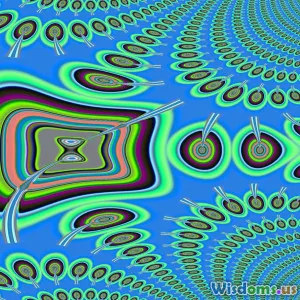
Comparing Meditation Styles for Deeper Consciousness Explained
10 min read Explore various meditation styles to deepen consciousness and transform your mind through proven techniques and mindful practices. (0 Reviews)
Comparing Meditation Styles for Deeper Consciousness Explained
Meditation has long been revered as a gateway to enhanced mental clarity, emotional stability, and profound states of consciousness. But with a multitude of meditation styles available — each promising unique benefits — how do we discern which path truly facilitates deeper awareness? This comprehensive guide unpacks the leading meditation techniques, contrasting their approaches, underlying philosophies, and outcomes to illuminate how you can cultivate a more awakened state of being.
Introduction: The Quest for Deeper Consciousness
The human mind is an intricate web of thoughts, feelings, and perceptions that often crisscross our awareness without pause. Deeper consciousness refers to accessing a heightened state of awareness beyond habitual mental clutter — a mental terrain where insight, serenity, and a profound sense of self emerge.
Meditation serves as a tool and practice to explore this terrain. Different styles employ varied methodologies: some focus on quieting the mind, others on concentration, and others yet on fostering open awareness. To understand which style might help you best deepen consciousness, it's vital to examine each on its own terms.
Mindfulness Meditation: Awareness Anchored in the Present
What Is Mindfulness Meditation?
Mindfulness meditation originates from Buddhist traditions but has gained global popularity due to its secular applications in psychology and wellness. It emphasizes observing thoughts, sensations, and emotions moment-to-moment without judgment.
How It Cultivates Deeper Consciousness
By fostering a non-reactive relationship to inner experience, mindfulness reduces habitual identification with fleeting mental content. This opens a space to witness consciousness itself. Research by Harvard-affiliated psychologist Sara Lazar has shown that consistent mindfulness practice thickens brain regions associated with attention and emotional regulation, aiding awareness expansion.
Real-World Application
Programs like Mindfulness-Based Stress Reduction (MBSR), pioneered by Jon Kabat-Zinn, report significant improvements in participants' emotional resilience and perceptual acuity — signals of deeper consciousness engagement.
Transcendental Meditation (TM): Effortless Access to Silent Awareness
Defining Transcendental Meditation
TM involves silently repeating a mantra to transcend active thought and settle into pure awareness. It doesn’t require concentration or contemplation but rather allows the mind to effortlessly dissolve into silence.
Mechanism for Heightened States
Dr. Norman Rosenthal's studies demonstrated TM can evoke EEG patterns indicative of restful alertness, typified by alpha brainwaves. Practitioners often report experiences of 'internal silence,' considered states where deeper consciousness flourishes organically.
Examples of Impact
Celebrities and business leaders like Oprah Winfrey and Ray Dalio attribute daily TM practice with improving their creativity and stress management — hallmarks of enhanced conscious functioning.
Zen Meditation (Zazen): Direct Experience Through Stillness
Overview of Zen Meditation
Zen meditation, or Zazen, centers on seated meditation focusing on the breath and posture with open vigilance. The goal is to experience direct insight into the nature of the mind without clinging to specific thoughts.
Path to Deeper Consciousness
Zen's discipline of just “being” without attachment cultivates alert presence. Historical Zen masters describe experiences of satori—brief moments of awakened understanding where ordinary consciousness transcends.
Practical Insights
Modern practitioners report that daily Zazen improves emotional balance and intuition. The famed psychologist Carl Jung appreciated Zen for facilitating encounters with the unconscious, thereby deepening self-knowledge.
Loving-Kindness Meditation (Metta): Heart-Centered Consciousness Expansion
What It Entails
Metta focuses on cultivating compassion by mentally sending goodwill to oneself and others. It shifts awareness from ego-centric to shared, interconnected consciousness.
Impact on Conscious Development
Studies published in journals like PLOS ONE reveal Metta practitioners experience increased positive emotions and empathy, which can break down the isolative boundaries of consciousness and promote unity.
Real-World Relevance
In clinical psychology, Metta is used to treat depression and social anxiety, underscoring how enhancing heart-centered awareness deepens not only emotional but also conscious connectivity.
Guided Visualization: Consciousness Through Imagery
Method and Intent
Guided meditation leads the practitioner through imagery scenarios promoting relaxation, healing, or personal insight. It harnesses imagination to deepen internal awareness.
How It Advances Consciousness
By engaging the subconscious mind through vivid images, this style can unearth hidden thoughts and feelings, facilitating integrative consciousness that bridges conscious and unconscious realms.
Evidence and Effectiveness
Athletes use visualization to optimize performance by accessing focused mental states, demonstrating its practical power to elevate consciousness contextually.
Comparative Analysis: Which Style Ideal for Deeper Consciousness?
| Meditation Style | Key Focus | Consciousness Outcome | Suitable For |
|---|---|---|---|
| Mindfulness | Present-moment awareness | Enhanced alertness & equanimity | Beginners, stress relief |
| Transcendental | Silent mantra repetition | Effortless access to pure awareness | Those seeking effortless practice |
| Zen (Zazen) | Stillness, posture, breath | Direct insight (satori experiences) | Discipline-focused meditators |
| Loving-Kindness (Metta) | Compassion cultivation | Expanded empathy and connection | Emotional and social healing |
| Guided Visualization | Imagery and intention | Integrative subconscious dialogue | Creativity, goal setting |
Each style engages consciousness differently: Mindfulness tightens observational clarity; TM eases the mind towards silent depths; Zen cultivates disciplined presence leading to awakening moments; Metta expands conscious empathy; Visualization taps into inner imagery to surface insights.
Integrating Meditation Styles for Holistic Awareness
Fusing approaches can yield synergistic benefits. For instance, practitioners often complement Mindfulness with Metta to balance equanimity with compassionate heartfulness. Likewise, combining TM’s ease with Zen’s austerity can deepen seated practice layers. Experimentation aligned with personal goals and temperament is key.
Expert Insights
According to Dr. Daniel Goleman, author of Altered Traits, the long-term effects of meditation on consciousness hinge less on style and more on commitment and authenticity of practice. As he notes, “The path to lasting consciousness change lies in sustained, earnest engagement rather than brief, sporadic sessions.” This echoes wisdom found across traditions.
Conclusion: Embarking on Your Journey to Deeper Consciousness
Discovering deeper consciousness through meditation is less about finding a ‘one-size-fits-all’ technique and more about exploring different paths that resonate authentically. Whether through the mindfulness that roots you in the present, TM’s effortless transcendence, Zen’s stillness, the heart-openness of Metta, or the imaginative journey of guided visualization, each style opens unique doors to inner expansiveness.
Your conscious evolution begins by choosing a method that encourages patience, consistency, and curiosity. Over time, meditation ceases to be a practice and becomes the lived experience of deeper consciousness itself — a profound transformation from moment to moment.
Take the first step today: try a guided mindfulness or mantra meditation. Observe how your consciousness responds. From there, continue exploring, and discover the depths your mind and heart can reach.
Rate the Post
User Reviews
Popular Posts



















